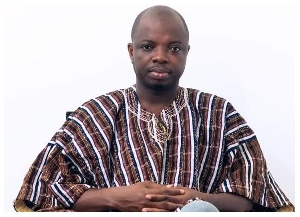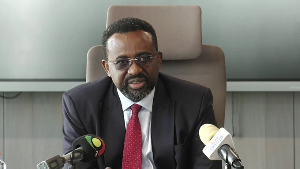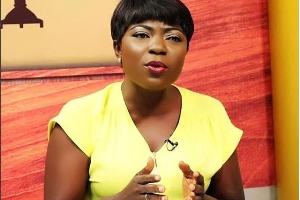By John Amponsah
Ghana has seen an increasing number of the "older generation" of professors joining politics, starting with the president himself. I have noticed that more and more intellectuals who were or still are at the University of Ghana (UG) have involved themselves in politics or have contributed in other ways to the affairs of the country.
Some of the UG intellectuals-turned-politicians are the president himself and (arguably) Dr Afari-Gyan however there are others such as the current vice Chancellor Professor Aryeetey and the current CEO of Korle-Bu, Professor Frimpong-Boateng who have also entered the game. We’ve also got other current and former UG stalwarts such as the most reverend archbishop Dr Osei Bonsu, Professor Sefa-Dedeh and others (the list above is not exhaustive) who are not politicians but who are contributing through religion or through development projects.
Add to these the intellectuals from the other universities in the country together with other specialists from professional fields like business and law and you get a very interesting and potentially powerful pool of national developers.
We need more Ghanaian intellectuals to take up the mantle, now is your time. In my opinion, this is especially true for those who have stayed in the country since the difficult years of the 70's, 80's and even the early to mid 90's, those who have lived through the last 30-40 years of change in our country. For this generation, now is your time.
Also good is seeing younger intellectuals like Dr Raymond Atuguba being involved in the affairs of the country. Although we seem to have a 'seniority-first' attitude in our culture, the younger generation should have a role to play in contributing to the affairs of the country.
Anyone who knows about the lives of the university lecturers and professors will agree that public intellectuals in our country don't gain much money from the government, as it is in many other countries. Most lecturers and professors augment their revenue through projects in conjunction with foreign universities and other interest groups. Rather than enter politics, many of these intellectuals prefer to just "do their own thing", focus on raising their families and pursuing their academic and development interests devoid of politics.
The decision as to whether or not enter politics should never be obligatory; rather it should be made for the right reasons: it should come out of personal interest and out of a genuine desire to serve one's country.
I say it again - now more than ever, we need all intellectuals who have a genuine interest in developing our country to get involved. We also need those Ghanaian intellectuals outside the country who have a genuine desire to help to also get involved. There are many Ghanaian intellectuals working in educational institutions outside the country. Some are returning to replace the "older generation" who have retired or are approaching retiring age. Again, there is the understanding that such returnees do so of their own free will, personal circumstances and desires yet it will be great to have more returnees. If things go well, Ghana has much potential to advance in many ways in the coming years.
I would just like to add that in addition to being a specialist, it is my hope that our intellectuals-turned-politicians will also strive to develop themselves into well rounded, savvy and worldly individuals if they aren't already so oriented. The world of politics can be a shady place, one must be smart, alert and abreast with diverse issues. Just because one is an intellectual does not mean one will be an effective politician in our increasingly “globalized” world. Yet having a brilliant mind is a great asset. Where possible, such brilliant Ghanaian minds should contribute to the leadership and development of our country.
Opinions of Thursday, 19 January 2012
Columnist: Amponsah, John


















